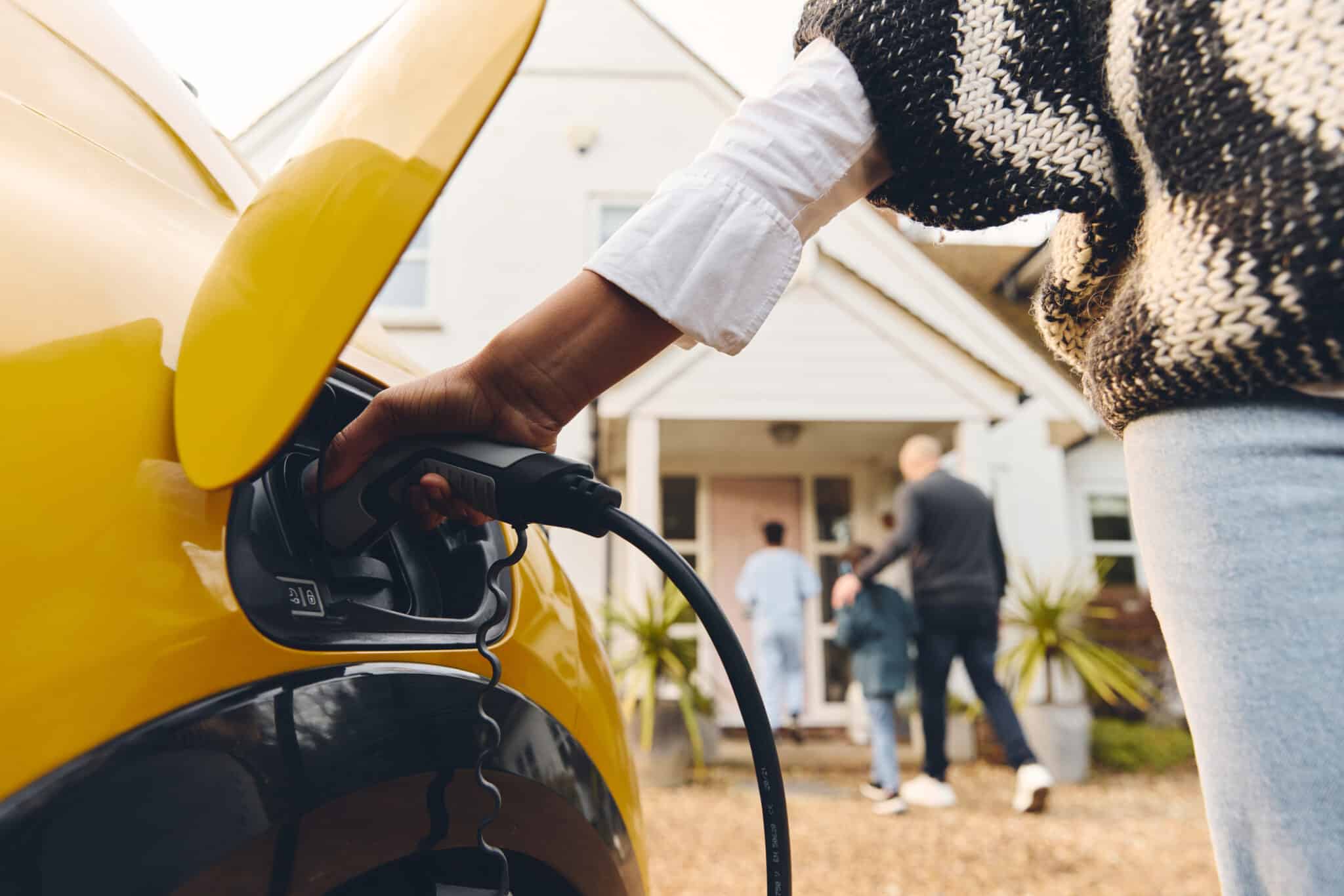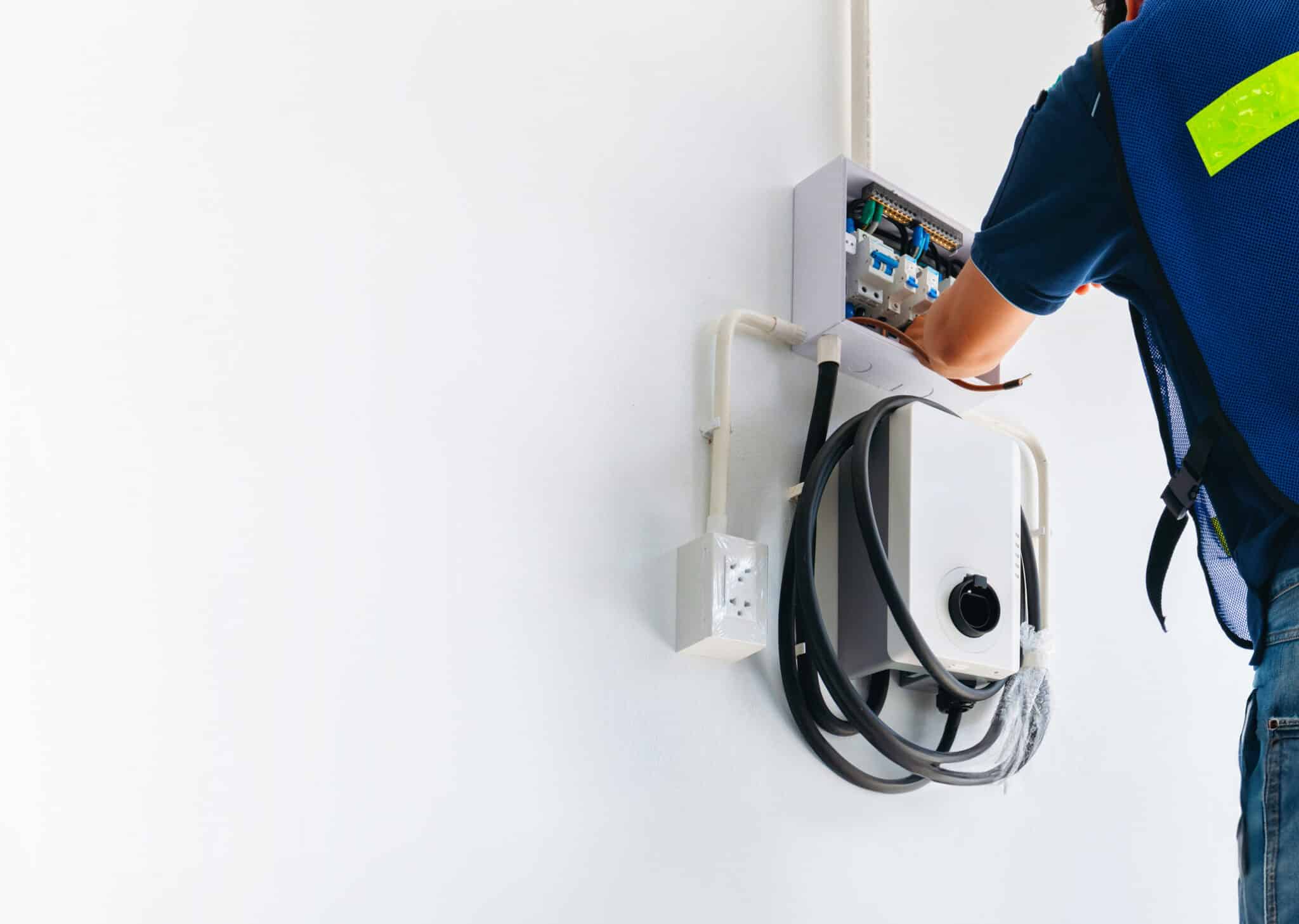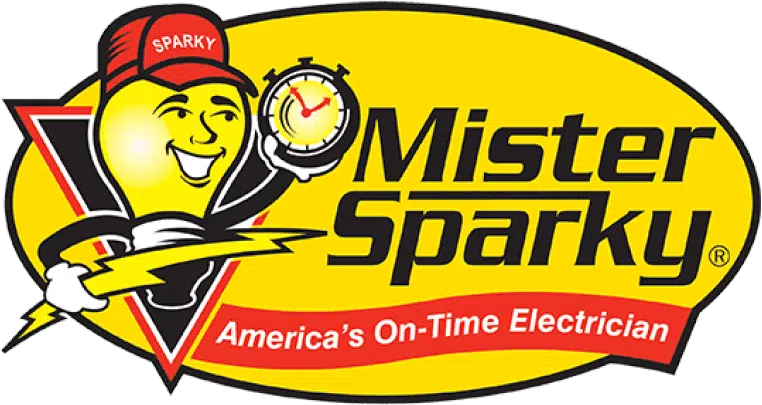Home EV charging stations offer convenience, cost savings, and environmental benefits, making them an essential addition for EV owners in Lancaster, York, and Harrisburg, PA. A Level 1 charger uses a standard 120-volt outlet but charges slowly, while a Level 2 charger requires a 240-volt outlet, charging your vehicle much faster. Installing a home charging station may increase your electric bill but is cheaper than public charging or gas. Regular inspection, cleaning, and maintenance can keep your station running efficiently. Ready to install your home EV charging station? Contact Mister Sparky of Lancaster for expert installation today!

Thinking about getting an electric vehicle but worried about how to keep it charged? Imagine never having to stop at a gas station again or search for a public charging station when you’re low on battery.
With home EV charging stations, you can power up your car right at home, anytime you want. Whether you’re in Lancaster, York, or Harrisburg, PA, this guide will walk you through everything you need to know about setting up and enjoying the benefits of a home EV charging station.
What is a Home EV Charging Station?
Ever wondered how you can keep your electric vehicle (EV) charged up without constantly searching for public charging stations? That’s where a home EV charging station comes into play. Imagine the convenience of plugging in your car at home, just like you do with your phone or laptop.
A home EV charging station is essentially a device installed in your garage or driveway that allows you to charge your electric vehicle right at your doorstep.
Home EV charging stations connect directly to your home’s electrical system and offer a more powerful, reliable, and faster way to charge your car than the standard outlets we all have at home.
These charging stations can vary in size, power output, and design, but the goal is always the same: giving your car the juice it needs without the hassle of leaving home.
In Lancaster, York, and Harrisburg, PA, where the popularity of EVs is on the rise, having a home EV charging station is becoming more of a necessity than a luxury.
It’s about taking control of your vehicle’s charging schedule and ensuring that you’re always ready to hit the road, whether it’s for a quick trip to the store or a longer journey across the state.
Benefits of Having a Home EV Charging Station
So, why should you consider installing a home EV charging station? There are plenty of reasons, but let’s dive into the ones that really matter.
Convenience of Charging at Home
Imagine waking up every morning to a fully charged car, ready to go wherever you need. That’s the convenience of having a home EV charging station.
No more planning your trips around public charging stations or worrying about finding an available spot. Just plug in your car when you get home, and it’s ready to roll by the time you are.
Cost Savings Over Public Charging Stations
Charging your EV at home can save you money in the long run. Public charging stations often have higher rates, especially if you’re using them frequently.
With a home charging station, you can take advantage of lower electricity rates, especially if you charge during off-peak hours. Over time, these savings add up, making your home charging station a smart financial investment.
Increased Home Value
Did you know that installing a home EV charging station can actually boost your property value? As more people switch to electric vehicles, homes with charging stations are becoming more desirable.
It’s a feature that potential buyers in places like Lancaster, York, and Harrisburg, PA, might be specifically looking for, making your home stand out in the market.
Environmental Benefits
We all want to do our part to protect the environment, and driving an electric vehicle is a great start. But did you know that charging your EV at home can make an even bigger difference? By using green energy options or simply reducing your reliance on public charging stations, you can minimize your carbon footprint. Plus, having a home charging station encourages you to drive electric more often, which is a win for the planet.
Types of Home EV Charging Stations
When it comes to choosing a home EV charging station, it’s important to understand the different types available. Not all chargers are created equal, and knowing the basics can help you pick the right one for your needs.
Level 1 Charging Stations
Level 1 charging stations are the most basic option and are often included with the purchase of an electric vehicle. These chargers plug into a standard 120-volt household outlet, making them super easy to set up.
However, they are also the slowest, taking anywhere from 8 to 20 hours to fully charge an EV, depending on the battery size. This option is great if you don’t drive long distances daily and have plenty of time to charge your car overnight.
Level 2 Charging Stations
Level 2 charging stations are a significant upgrade from Level 1. These chargers require a 240-volt outlet, similar to what you’d use for a dryer or oven, and they can charge your EV much faster. Most Level 2 chargers can fully charge a vehicle in 4 to 8 hours, making them ideal for overnight charging.
They are the most common choice for home installations because they offer a good balance between charging speed and installation cost.
Differences Between Level 1 and Level 2 Charging
Choosing between Level 1 and Level 2 charging stations depends on your lifestyle and how you use your electric vehicle. Here’s a quick comparison to help you understand the key differences:
- Speed and Convenience: Level 1 is slower and best for occasional use, while Level 2 is faster and more convenient for daily use.
- Features: Level 2 chargers often include advanced features like scheduling charging times and monitoring energy usage.
- Usage: Level 1 is great if you don’t drive much, while Level 2 is ideal for frequent drivers needing faster charging.
Understanding these differences can help you choose the right EV charging stations for your home, ensuring it meets your specific needs and driving habits.
How to Choose the Right EV Charging Station for Your Home
Now that you know the basics about the different types of home EV charging stations, it’s time to figure out which EV charging stations are the perfect match for your needs.
Choosing the right EV charging stations can seem overwhelming, but by considering a few key factors, you can make an informed decision that suits your vehicle and lifestyle. Here are some important aspects to keep in mind when selecting your home EV charging stations.
Consider Your EV’s Battery Size
The size of your EV’s battery is one of the most crucial factors in determining the best EV charging station for your home. If your electric vehicle has a larger battery, you’ll likely benefit from a Level 2 EV charging station.
These stations provide faster charging times, ensuring that your vehicle is ready to go when you are. This is particularly important if you often drive long distances or need to recharge your car more frequently.
A Level 2 EV charging station can efficiently handle the larger capacity, saving you time and making your EV ownership experience more convenient.
Installation Requirements
Before you rush out to purchase an EV charging station, it’s essential to think about your home’s electrical setup. Not all homes are immediately equipped to handle the power needs of a Level 2 EV charging station.
These stations require a 240-volt outlet, which is not standard in most garages or driveways. You may need to hire a professional electrician to install the necessary outlet and ensure that your home’s electrical system can support the EV charging station safely and efficiently.
This installation process can add to the overall cost, so it’s important to factor this into your decision. Understanding the installation requirements ahead of time will help you avoid any surprises and ensure that your EV charging station is installed correctly.
Budget Considerations
Your budget plays a significant role in choosing the right EV charging station for your home. Level 1 EV charging stations are typically less expensive upfront because they don’t require any special installation; they simply plug into a standard household outlet. However, they are slower, which might not be ideal if you need quicker charging times.
On the other hand, Level 2 EV charging stations come with a higher initial cost and often require professional installation, but they offer the convenience of faster charging.
When considering your budget, think about how often you’ll be using your EV charging station and whether the benefits of a faster, more powerful charger justify the extra expense. Investing in the right EV charging station that meets your needs can provide long-term value and enhance your overall EV experience.

Installing a Home EV Charging Station
Once you’ve chosen the right home EV charging station for your needs, the next step is installation. Here’s what you need to know to get your charging station up and running.
Do You Need an Electrician?
If you’ve opted for a Level 2 charging station, you’ll likely need to hire a professional electrician. This is because Level 2 chargers require a 240-volt outlet, which isn’t typically available in most garages or driveways.
An electrician can assess your home’s electrical system, install the necessary outlet, and ensure that everything is up to code. While this adds to the initial cost, it’s crucial for safety and making sure your charger works correctly.
Step-by-Step Installation Process
The installation process for a home EV charging station generally involves a few key steps:
- Site Assessment: Before installation, an electrician will assess your home’s electrical system to determine if any upgrades are needed.
- Permitting: Depending on where you live, you may need a permit to install a charging station. Your electrician can help with this process.
- Installation: The electrician will install the 240-volt outlet (if needed) and mount the charging station on a wall or pedestal.
- Testing: Once installed, the electrician will test the charger to ensure it’s working correctly and safely.
- First Charge: After installation, you can plug in your EV and start charging right away!
This process might take a few hours to a full day, depending on the complexity of the installation, but once it’s done, you’ll be ready to charge your EV at home.
Maintenance Tips for Your EV Charging Station
Now that your home EV charging stations are installed, keeping them in good shape is essential for ensuring they work efficiently and last a long time. Proper maintenance of your EV charging stations can save you time, money, and headaches in the future.
Here are some simple maintenance tips to help you get the most out of your investment and ensure your EV charging stations remain in top condition.
Regular Inspection
Just like any other appliance, your EV charging stations need regular check-ups. Every few months, look closely at the charging cables, connectors, and the stations themselves for any signs of wear and tear.
Look for frayed wires, loose connections, or any damage that might affect their performance. Catching these issues early can prevent bigger problems down the road and keep your EV charging stations running smoothly.
Cleaning and Upkeep
Dust and debris can build up on your EV charging stations over time, especially if installed outside. Keep the stations clean by wiping them down with a dry or slightly damp cloth.
Avoid using harsh chemicals or water directly on the units, as this could damage the electronics. Keeping the stations clean not only helps them look good but also ensures that they function properly, extending the life of your EV charging stations.
Troubleshooting Common Issues
Sometimes, things don’t go as planned, and your EV charging stations might not work as expected. If you notice your EVs aren’t charging or the stations aren’t powering up, first check the connections and make sure the stations are securely plugged into the power source.
If the issue persists, consult the user manuals for troubleshooting tips or reset the units by turning off the breaker and turning it back on. Keeping a close eye on these issues can help you maintain the reliability of your EV charging stations.
When to Call a Professional
If you’ve tried troubleshooting and the problem still isn’t fixed, it might be time to call in a professional. Issues like persistent charging failures, strange noises, or overheating can be signs of a deeper problem that needs expert attention.
Don’t hesitate to get help, as it’s better to address potential dangers sooner rather than later to ensure your EV charging stations continue to operate safely and efficiently.
Ready to Power Up Your Home EV Charging Station?
Looking to install a reliable EV charging station at home in Lancaster, York, or Harrisburg, PA? Mister Sparky of Lancaster is here to help! Our expert electricians ensure a safe and seamless installation process, so you can enjoy the convenience of charging your EV right at home. Don’t wait—contact us today to get started on your home EV charging station setup!

FAQs About Home EV Charging Stations
How Long Does It Take to Charge an EV at Home?
The time it takes to charge your EV at home depends on the type of charger you’re using. A Level 1 charger can take anywhere from 8 to 20 hours to fully charge an electric vehicle, while a Level 2 charger can do the job in about 4 to 8 hours. If you’re often in a rush, a Level 2 charger is definitely the way to go.
Can I Charge My EV in Bad Weather?
Yes, you can charge your EV in bad weather, but it’s important to take precautions. Most home EV charging stations are weatherproof, but it’s still a good idea to avoid charging during severe storms or when there’s a risk of lightning. If your station is installed outdoors, make sure the connections are dry before plugging in. Safety first!
What’s the Best Time to Charge My EV at Home?
The best time to charge your EV at home is during off-peak hours when electricity rates are lower. In many areas, off-peak hours are late at night or early in the morning. Charging during these times can save you money on your energy bill. Plus, it ensures your car is fully charged and ready for the day ahead.
Do I Need a Special Outlet for a Level 2 Charger?
Yes, a Level 2 charger requires a 240-volt outlet, which is different from the standard 120-volt outlets found in most homes. If you don’t already have a 240-volt outlet in your garage or driveway, you’ll need to have one installed by a professional electrician. This upgrade is necessary for the faster charging speed that Level 2 chargers offer.
Will Installing Home EV Charging Stations Increase My Electric Bill?
Yes, using home EV charging stations will increase your electric bill, but it’s usually much cheaper than relying on public charging stations or gas for traditional cars. The exact amount depends on how often you charge your vehicle and the local electricity rates.






